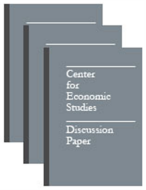Smart Cafe Cities: Testing Human Capital Externalities in the Boston Metropolitan Area
Smart Cafe Cities: Testing Human Capital Externalities in the Boston Metropolitan Area
Abstract
Existing studies have explored either only one or two of the mechanisms that human capital externalities percolate at only macrogeographic levels. This paper uses the 1990 Massachusetts Census data and tests four mechanisms at the microgeographic levels in the Boston metropolitan area labor market. We propose that individual workers can learn from their occupational and industrial peers in the same local labor market through four channels: depth of human capital stock, Marshallian labor market externalities, Jacobs labor market externalities, and thickness of the local labor market. We find that all types of human capital externalities are significant across Census blocks. Different types of externalities attenuate at different speeds over distances. For example, the effect of human capital depth decays rapidly beyond three miles away from block centroid. We conclude that knowledge spillovers are very localized within microgeographic scope in cities that we call Smart Café Cities.




